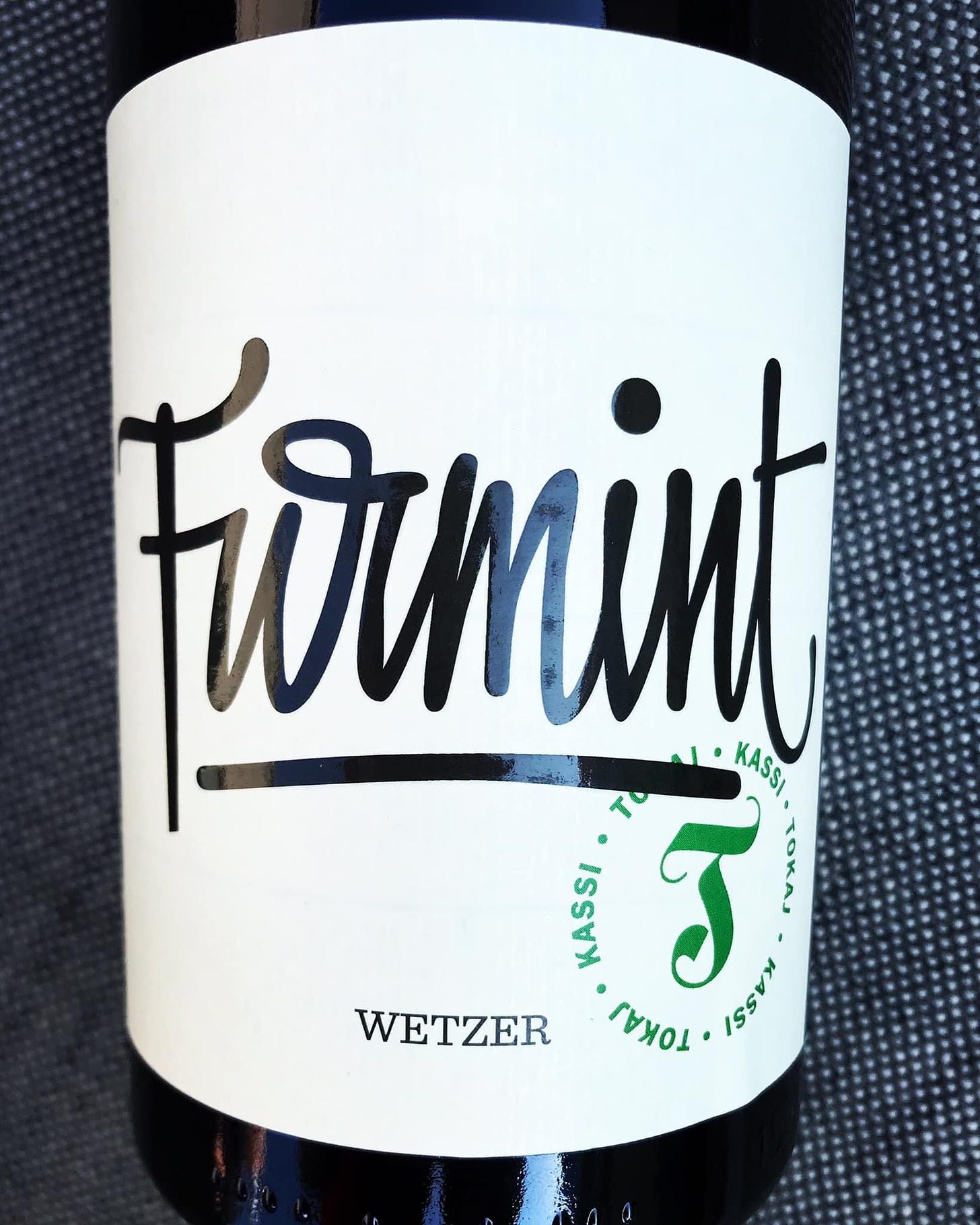The 2018 Wetzer Furmint, Tokaj changed my life four years ago when I tasted it during the pandemic – and two years ago when I wrote about it and won a category of the 2022 Hungarian Web Wine Writing competition, which led me to Hungary for the first of six times since then.
My first taste of a dry Furmint is forever etched in my memory. I purchased the wine during the pandemic – the 2018 Wetzer Furmint, Tokaj, Hungary – at Compline, a local wine shop and restaurant in the city of Napa known for its specially curated and eclectic selection of international wines.
Péter Wetzer, a lifetime student of winemaking and viticulture, is the fifth generation living in the family home with an attached cellar that is over 120 years old. In 2007, he purchased 2.5 hectares (six acres) of flourishing vineyards spanning five terroirs, including Tokaj. He farms organically with minimal intervention, then harvests the grapes by hand. He employs traditional winemaking practices like foot stomping and basket pressing to extract the juice from whole grape clusters. Indigenous yeast fermentation occurs in open-topped containers, then he ages the resulting wine on the lees in neutral Hungarian oak barrels – unracked, unfiltered, and unfined. “I want to make special wines that have personality and identity, delicate wines with character influenced by their origin and heritage, made with traditional grape varieties which translate the sense of place,” said Wetzer.
Wine enthusiasts may be familiar with Furmint as a world-renowned sweet wine, Tokaji Aszú, but the 2018 Wetzer Furmint is made in a drier style with only two grams of residual sugar per liter. The grapes come from four single vineyards in Tokaj – Palandor, Fehérkút, Úrágya and Danczka – whose vines are around 35 years old.
Wetzer aged this wine nine months in barrel, as well as in the bottle, prior to its release. The 2018 showed more ripeness and botrytis than the previous vintage. “This wine shows a bit more power, but elegant, smoky fruit and Tokaj minerality. I like it a lot and drink a sip every day,” wrote Wetzer. An anonymous online reviewer described it as “beautiful and rich, like honey with the sweetness turned off.”
At first sip, I had no words to describe this Furmint, no wine flavor profile point of reference. It was different than any wine I had ever tasted. I used my Coravin to sample it over the course of a few days. I identified an aroma that reminded me of the honeysuckle that grew around my childhood home in Asheville, North Carolina. I detected flavors like applesauce and honeyed lemon. The native yeast fermentation contributed a pleasantly savory quality. The ample mouthfeel and lingering finish – the result of Wetzer not racking, filtering, or fining the wine – resulted in an unforgettable textural and taste experience.




